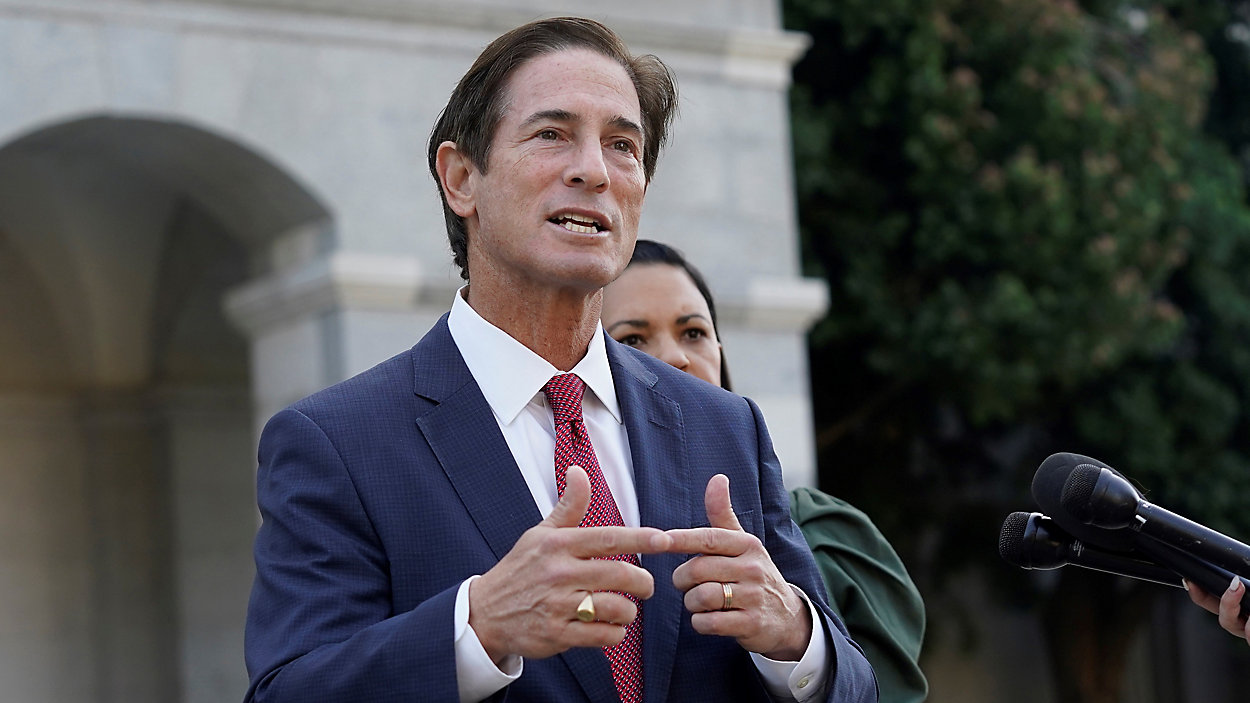Practically every student of Austrian economics is familiar, at least in passing, with the moment when Keynes said the proverbial quiet part out loud in the foreword to the German edition of his General Theory. One translation of that text reads,
[T]he theory of output as a whole, which is what the following book purports to provide, is much more easily adapted to the conditions of a totalitarian state, than is the theory of production and distribution of a given output produced under the conditions of free competition and a large measure of laissez-faire.
That Keynes’s preferred policies are more easily implemented in a totalitarian state is often given as evidence that Keynes himself preferred such states. That is probably true, but it is perhaps more accurate to state that the nature of Keynes’s system works better in a totalitarian state because such a state has the ability to centrally control the various macro structures that must be controlled to respond to movements in the economy. In short, a system like Keynes’s demands certain powers for the state, otherwise the system can only be implemented partially, at best, and utopia becomes unreachable.
One could argue, based on the well-known demerits of totalitarian state control, that any system requiring it is probably never going to reach utopia, but the most fervent adherents to the ideology will continuously argue that imperfect implementation is the only thing standing between mankind and paradise (see also: Marxists).
Along these lines, however, it stands to reason that we ought to examine the hidden requirements of a system, and—if those hidden requirements are known to be catastrophically destructive—we can judge the system which needs them as flawed, without having to grapple with every quibble its adherents produce.
Elsewhere, I have written how the proponents of forcible civilian disarmament are not merely trying to make the people helpless wards of the state—they are in fact hacking away at several fundamental principles of English common law that protect individuals from state overreach. Security of private property, presumption of innocence, freedom from prior restraint, and requirement of an evidentiary basis for tort claims are all pillars of our civilization, so deeply ingrained in our thought processes that many take them for granted. These principles protect us from so many disastrous incentives that it is hard to gauge the scope of the damage from losing them.
In the same way that these legal protections are fundamental to a free society, so are certain economic freedoms. The history of state influence over the economy in the United States is a long, unfortunate series of creeping infringements on freedom. From central banks that were never authorized by the Constitution, to the hijacking of the monetary system by the state far beyond the coining of gold and silver, to the massive and unaccountable regulatory apparatus we suffer under today, private property and free exchange have lost a great deal of ground. The power of the federal government to print as much money as it wishes and to spend that money expropriating whatever private goods it desires is a loathsome fact.
Modern Monetary Theory (MMT) promotes vigorous exercise of the state’s ability to print and spend. As I have written in an earlier Mises Wire, some proponents of MMT at least try to correctly describe the consequences of a print-and-spend policy, but the less responsible proponents (and, not coincidentally, the ones politicians tend to listen to) downplay these negative consequences as much as they can.
One of their typical arguments is that any negative consequences of print-and-spend policy can be counteracted by taxation, but it is precisely here that the hidden totalitarian bias of MMT rears its ugly head, if you take a moment to look for it.
As bad as we have it today, one thing the state cannot do without significant public support is to vastly and quickly increase the level of taxation. It is this power—the power to effortlessly remove excess fiat currency from circulation—that today’s government lacks. Income tax hikes must be passed by Congress. Implementation of federal sales or wealth taxes would require overwhelming congressional support, if not a constitutional amendment. Despite massive variations in marginal tax rates over the last hundred years or so, the federal government has never been able to tax more than about twenty percent of GDP.
In contrast, the commonly-offered MMT policy of paying for healthcare via money-printing would increase the money supply by approximately this amount in one year, even assuming (incorrectly) that this policy would not also result in a massive increase in healthcare spending. Implementation of this one policy would require the federal government to extract more in taxes than it ever has. Clearly, despite the immense and detestable power the federal government now exercises against the economy, it still lacks the power it would need to do this.
What MMT demands is—in addition to being able to freely print and spend—the power to arbitrarily tax wherever, whenever, and however much it decides on a whim, with no political consequences, and no extended debate. In order for MMT policy to “work,” these few remaining restrictions on state control of the economy must be removed.
If you thought that the siren song of unlimited printing and spending was bad, imagine the consequences of unrestricted taxation! There would no longer be any semblance of private property rights left—state boondoggles funded by irresponsible printing would be followed by state expropriation of private property until the problem was “fixed” to the satisfaction of self-serving state functionaries.
Even worse, this power would necessarily mean no responsibility and no accountability. Everything would need to be handled by some unelected bureaucracy, in order to achieve what MMTers might benignly call the “necessary agility” to deal with economic issues as they arose. The convenient scapegoat for the state would be macroeconomic figures that could be adjusted at will to exonerate any policy decision whatsoever. No politician needs ever worry about being thrown out of his seat for violating the public trust—at least, in an economic sense—ever again!
Thus, we see that the logical end point of any state wishing to implement MMT policy suggestions is totalitarian control of the economy and abolition of private property. As students of economics, we can point to a practically unlimited stream of very convincing reasons that any system that pushes in such a direction as hard as MMT does should be ignored as the self-destructive gibberish that it is.
Keynes—in suggesting that states with political power over the economy like that of Hitler’s Germany were better-suited to implement his policy suggestions—was a piker by comparison to the MMTers, who demand an immeasurably heavier yoke be placed upon our necks. It is up to us to ensure that they never do.
























